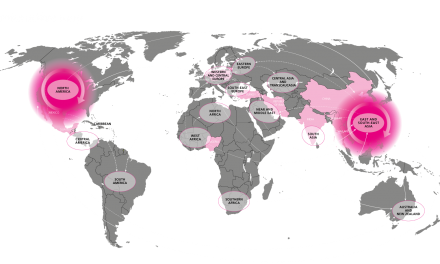Thought I might go off topic today, to comment on an issue that came up while I was revising a policy for an outpatient program that wants to use both live and telehealth services. One of their staff members asked this question:
“Why is it that the health department keeps sending me e-mails encouraging me to apply for a COVID booster, but whenever I bring the subject up with my family doctor, she says that it’s probably not necessary yet? It’s confusing.”
I bet it is. The question reflects the larger confusion among the public about the different roles, values and mission of public health, as opposed to the sort of medicine we encounter when we visit the doctor or clinic for a health problem. Let’s see if I can clarify things.
When I search the Internet under ‘public health medicine, definition’, here’s what I find:
- The World Health Organization describes it in terms of “the art and science of preventing disease, prolonging life and promoting health through the organized efforts of society.” Italics mine.
- The CDC expands that somewhat, to include: “…preventing disease, prolonging life, and promoting health through the organized efforts and informed choices of society, organizations, public and private communities, and individuals.”
The emphasis is on concern for the welfare of all — meaning the communities where we live, and society as a whole. The focus is on community welfare rather than any one particular individual. Public health policies, guidelines, and recommendations will naturally reflect that focus.
Search for a definition of clinical medicine, however, and we find something different. An example:
“[Medicine] having to do with the direct examination and treatment of patients.” Or: “…pertaining to a clinic or to the bedside; pertaining to or founded on actual observation and treatment of patients, as distinguished from theoretical or experimental.”
A physician I know expressed it best: “it’s just medicine, up close and personal.” A patient and a practitioner working together, in the patient’s best interests, based on what was found through examination.
This is my point: when a public health agency advocates for vaccination, it’s in consideration of the best interests of the community or larger society. That’s especially true where infectious diseases are involved. They’re contagious. Public health sets out to protect our lives, but also the lives of those we come into contact with.
When a patient asks a physician about a booster, on the other hand, the doctor responds in the context of that individual patient’s current medical status, as established through observation and testing. “No need to rush things,” he or she may conclude. And at the moment, that may well be the case. For now.
Likewise, public health directives are intended to reflect recent data and research on factors such as the environment, transmission rates, and a host of others. And they do a very good job of addressing a set of needs beyond you and I alone.
Practitioner and public health agency are really just doing their respective jobs. Suppose one of your neighbors, someone who’d been fully vaccinated, happened to experience a ‘breakthrough’ infection. That isn’t proof that vaccines ‘don’t work.’ Because solid, well-designed research has demonstrated that they do – far better than initially expected, at least when it comes to COVID. Yet it’s still possible to that a vaccine’s effectiveness will wane over time, requiring another dose. That’s what happens with the flu vaccine, after all. When winter rolls around…
Getting vaccinated , however, is not a guarantee we won’t get the flu. We all know that, don’t we? It does, however, mean that our risk of getting sick and of experiencing severe illness is substantially reduced versus being unvaccinated.
About evidence: the scientific aspect is super-important. Doctors, even the best ones, can disagree. There are more than a million physicians in the US alone. Any professional group of that size will encompass practically any opinion you or I can think of. Some will represent the very best that medicine has to offer. Others, frankly, will not. And a few (possibly more than a few) will turn out to be outright nonsense, or even dangerous.
The problem emerges when the public assumes that simply appearing on TV or a podcast or online is enough to establish credibility for whatever opinion a particular doctor may happen to express. It ain’t so.
There’s an old joke: what do we call the med student who graduated last in their class? All too often, Doctor.
The media, especially social media, is jam-packed with anecdotes about this or that remedy or miracle treatment, based on someone’s story about their own personal experience. “My uncle got sick and he took these supplements, and he got all better,” we hear. Good for your uncle, but that isn’t proof it’ll work for you or me or anybody else. Or even that it’s safe to try.
For that we rely on science and scientific evidence — the sort that’s based on objective testing, using the scientific method, being reproduced by others, and of having its findings confirmed (or not) by more research.
Of course, the research findings still must be reported accurately and interpreted responsibly. That can take time, but it’s necessary.
I don’t know if we should refer to this process as ‘the gold standard’ for evidence, but it’s close.













